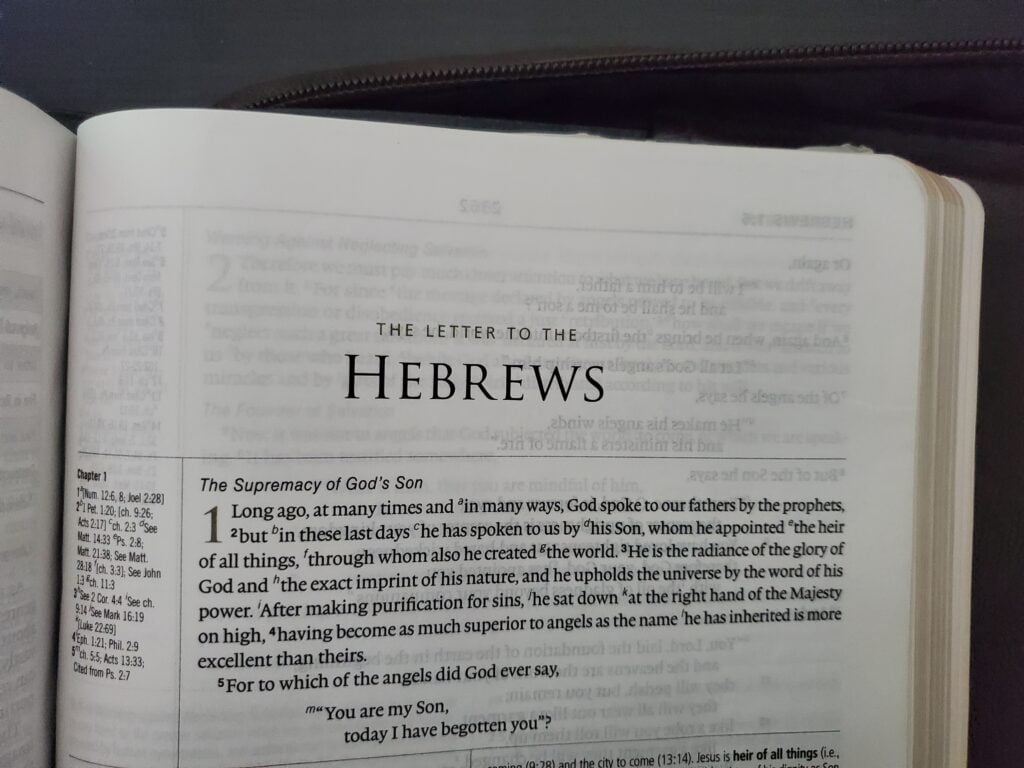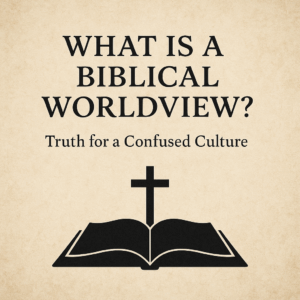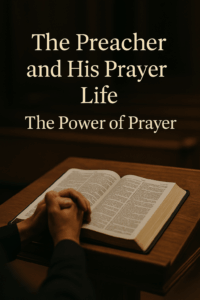⏱️ Estimated Reading Time: 5 min read
The God of Peace (Hebrews 13:20)
Hebrews 13:20, “Now may the God of peace who brought again from the dead our Lord Jesus, the great shepherd of the sheep, by the blood of the eternal covenant.”
Who God is
As Hebrews ends, we find a beautiful benediction in 13:20-21. The author first declares who God is (13:20), what God did (13:20), and what he is asking God to do for them (13:21).
Benedictions in Scripture give the hearers benefit when they are delivered from ministers authorized to speak from God, such as a prophet, priest, or an apostle. One of the most familiar is Numbers 6:24-26. This is the Aaronic benediction, and in it, Aaron was to put God’s name upon the people (Num. 6:27). Putting God’s name upon the people was a way to bless them.
“The LORD bless you and keep you; the LORD make his face to shine upon you and be gracious to you; the LORD lift up his countenance upon you and give you peace.”
The Giver of Peace
This beautiful benediction begins with a beautiful description of God as the God of peace. Our heavenly Father is a God of peace. Peace is only found in God and when God gives it. He is the giver of peace. “The LORD lift up his countenance upon you and give you peace.” If we are going to know peace in this world, it must be because God gives it to us.
Paul frequently employed the phrase the God of peace. He uses it twice at the end of Romans. Once, he uses it, saying, “May the God of peace be with you all” (Rom. 15:30). In the next chapter, he describes God as the God of peace who will soon crush Satan under our feet (Rom. 16:20). In both of his letters to the Thessalonians, he closes with the sanctifying work of the God of peace (1 Thess. 5:23) and asking that the Lord of peace always give them peace and, in every way (2 Thess. 3:16).
Jesus also is a giver of peace. He told His disciples in the upper room that He gave them His peace (John 14:27).
Peace with and from God is closely connected to Christ. Paul, after declaring the great reality of the Christian’s justification by faith alone in Christ alone, writes, “since we have been justified through faith, we have peace with God” (Rom. 5:1)
The only way to experience peace in this life and to have peace with God is for Him to give it to us through Christ.
The Raised Shepherd of the Sheep
The author declared something about God, He is the God of peace, and next, he tells us about the work of this God of peace. We learn again that God, the peace God gives to us, is closely connected to the person and work of Christ.
The God of peace brought Jesus again from the dead, and He did it by the blood of the eternal covenant. There are three phrases the deserve our attention.
Who Brought Again from the Dead
Who did the God of peace bring up from death? Jesus.
Jesus died on the cross. He was dead, He did not appear to be dead He died. But Jesus is alive today, and God the Father raised Him from the dead. He is alive today (Heb. 7:8), and He lives forever to intercede for His disciples. Paul uses a similar phrase in Romans 10:7, showing that this language “brought again from the dead” is referring to the resurrection of Christ. Jesus is Lord of all. He is our Lord; we submit to and follow Him.
The Great Shepherd
The author shifts attention for a moment from what God the Father did in raising Christ from the dead to teach us about Jesus Himself. Jesus is the great shepherd of the sheep.
Jesus described Himself as the good shepherd in John 10:11. As the good shepherd, He willingly laid down His life for His sheep (John 10:18). Jesus knows His sheep, and they know Him (John 10:1-5). In this description of Christ, we see His great love. He gave His life to redeem the sheep that were given to Him by the Father. Because Jesus is our Shepherd, we have no want (Psalm 23:1), and we have abundant life (John 10:10). We have everything we need and abundant life because of the great shepherd; it has nothing to do with us and everything to do with Him.
By the Blood of the Eternal Covenant
This phrase is the grounds of the phrase, “who brought again from the dead our Lord Jesus.” The resurrection is the Father’s stamp of approval on the work of Christ. His perfect life and death pleased the Father. Christ willingly laid down His life for the sheep, and the Father willingly raised Him from the dead.
The covenant concept is prominent throughout Hebrews because Jesus is the mediator of a new and better covenant (Heb. 7:22; 8:6). Indeed, as we learn here, Jesus is the mediator of an eternal covenant. Eternal is used in Hebrews to describe different aspects of the work of Christ.
- Christ is the source of eternal salvation for all who believe in Him (5:9).
- Christ secured an eternal redemption for us (9:12).
- Because Christ is the mediator of a new covenant, those who are called will receive an eternal inheritance (9:15).
- Christ offered His work of atonement through the eternal Spirit (9:14).
Based on this eternal work of Christ, He is the mediator of an eternal covenant that He secured by His blood.
Our Father is the God who gives peace because of Christ. He raised the great shepherd of the sheep from the dead because of the blood He shed for the eternal covenant. We are secure and have peace with God because of Christ. May we live lives that reflect it and glorify our gracious Father.




